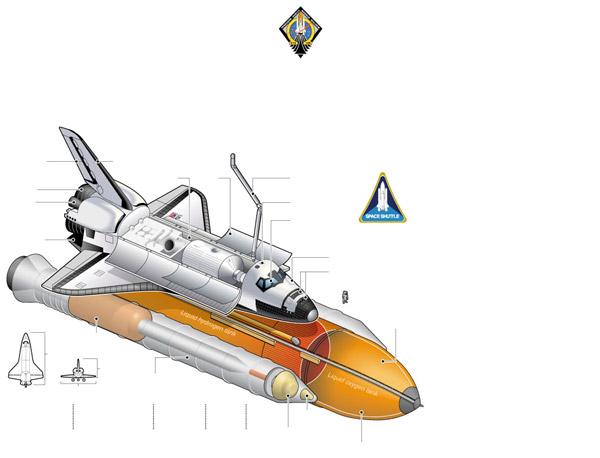Science and Health
NASA confirms July 8 for last shuttle launch
(Agencies)
Updated: 2011-06-29 10:25
 |
Large Medium Small |
|
|
CAPE CANAVERAL, Florida - The last space shuttle launch ever is set for July 8.
NASA managers met at Kennedy Space Center on Tuesday and confirmed Friday, July 8, as the launch date for Atlantis. The 12-day mission will close out the 30-year shuttle program.
NASA's chief of space operations, Bill Gerstenmaier, said there was no fanfare at the gathering, just a thorough look at the mission and all the problems resolved in recent weeks by the shuttle team.
Atlantis will fly to the International Space Station with a year's worth of supplies. That's enough to keep the outpost going in case private US companies fall behind in their effort to launch their own cargo ships. The first such flight is targeted for later this year.
"This flight is incredibly important to space station," Gerstenmaier told reporters. "The cargo that is coming up on this flight is really mandatory."
Four veteran astronauts will be aboard Atlantis for this grand finale.
NASA spent the past week testing a new fuel valve installed in one of Atlantis' main engines to stop a leak found during a fueling test. A small particle was found in the removed valve and likely contributed to the leak, Gerstenmaier said.
Technicians also X-rayed support brackets on the external fuel tank. No cracking was discovered. The testing was ordered after cracks popped up on the struts on Discovery's tank last November. Repairs took care of the problem on Discovery and also Atlantis.
Launch time for the last flight is 11:26 am As many as 500,000 to 750,000 people are expected to descend on the area to watch Atlantis blast off, said launch director Mike Leinbach.
As for the shuttle work force, thousands more will lose their jobs once Atlantis flies.
"The mood is getting more and more somber as you walk down the hall," Leinbach said. "The end is just weeks away now, where it used to be years away."
NASA is under direction to aim beyond Earth's orbit, ultimately sending astronauts to an asteroid or Mars. That's why the agency is retiring its three remaining shuttles to museums.
Up at the space station, meanwhile, the six astronauts had to briefly hide out in their parked lifeboats Tuesday because of an unidentified piece of space junk that passed within 1,100 feet (335 meters). That's the closest that debris has ever come to the orbiting outpost, Gerstenmaier said.
| 分享按鈕 |

